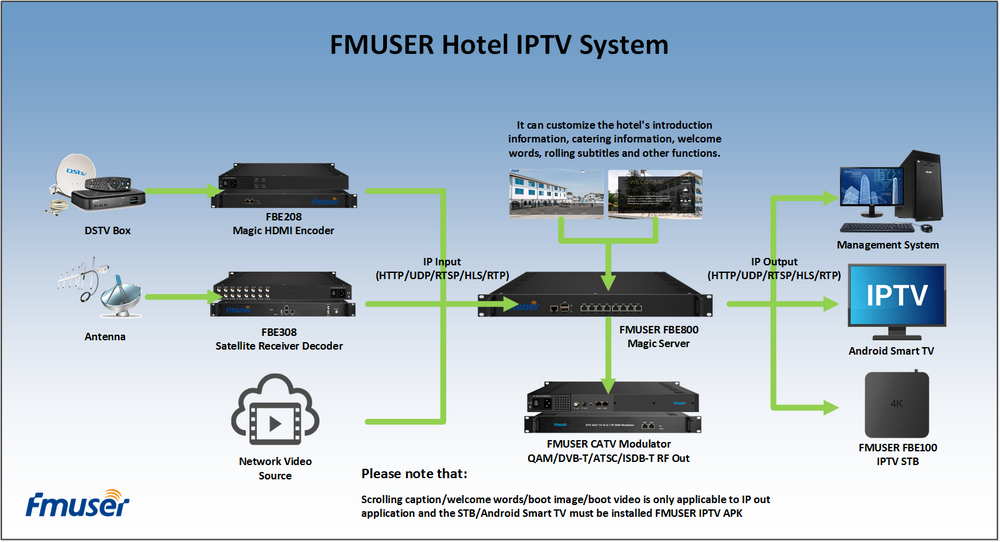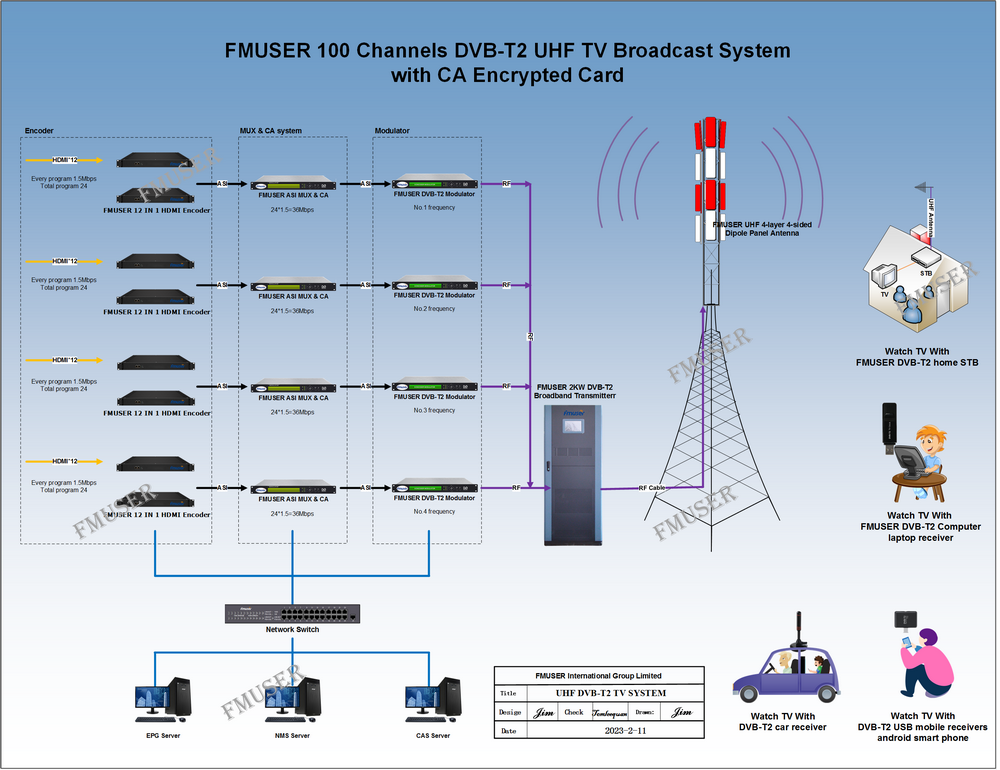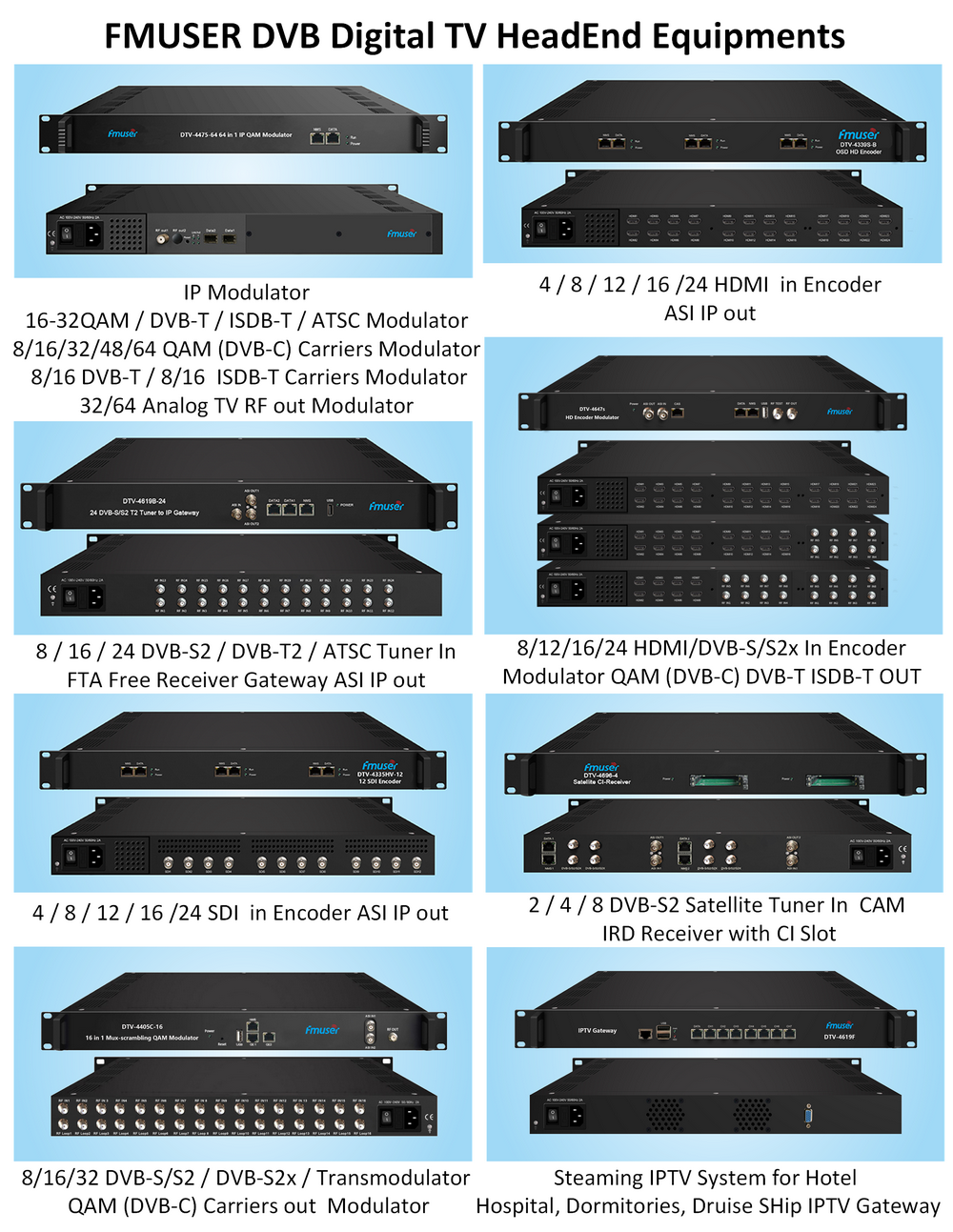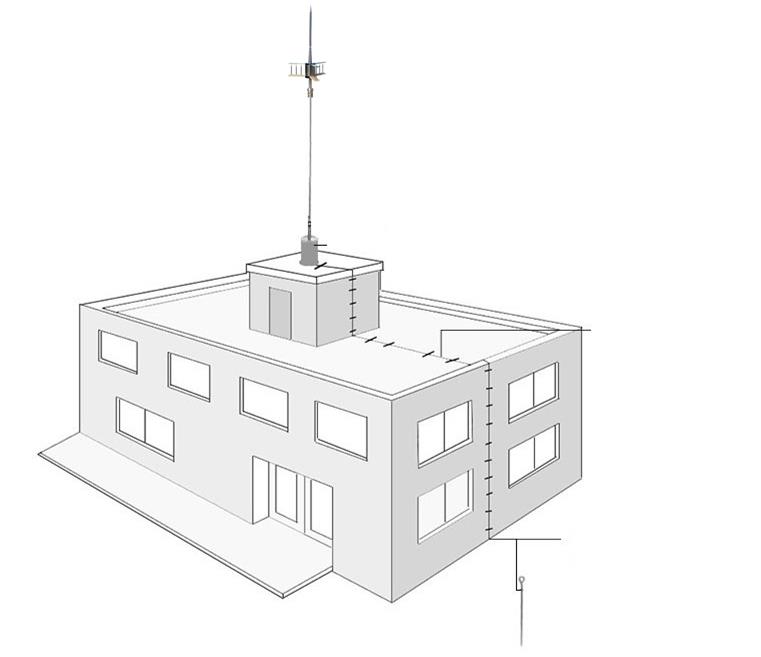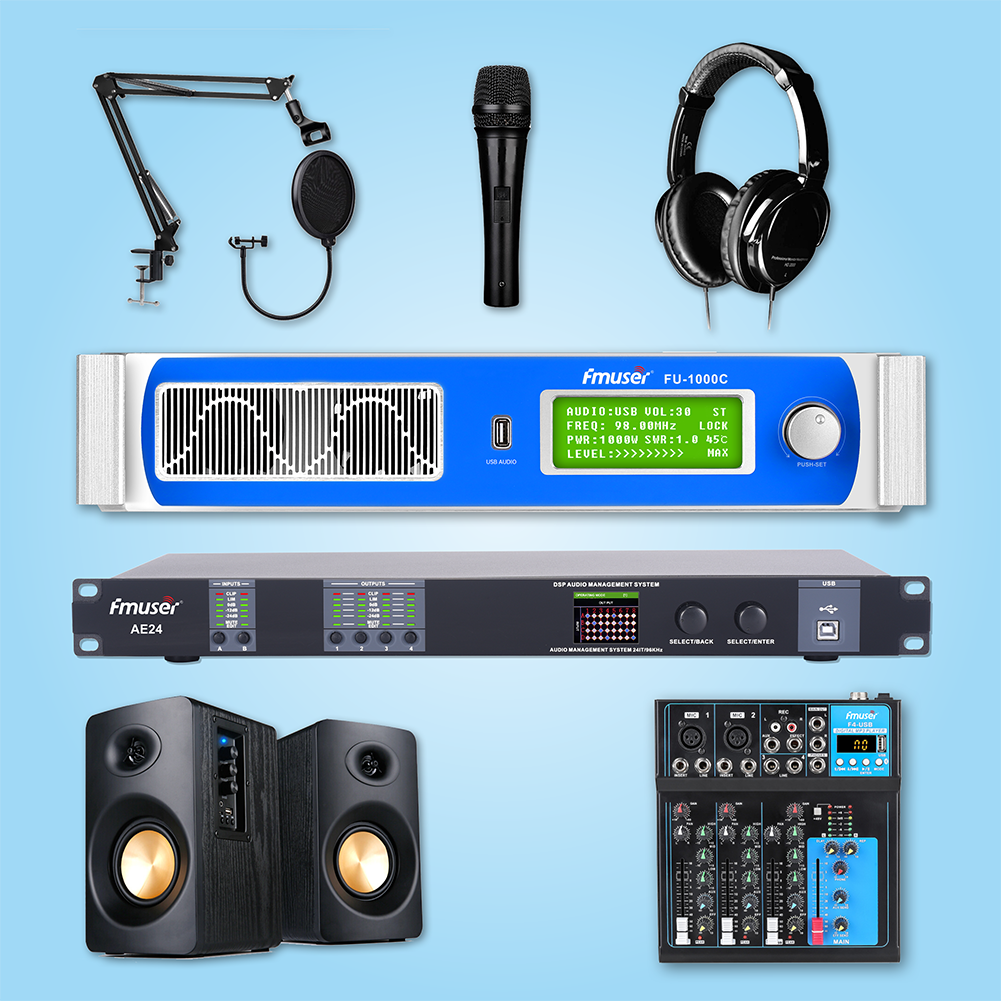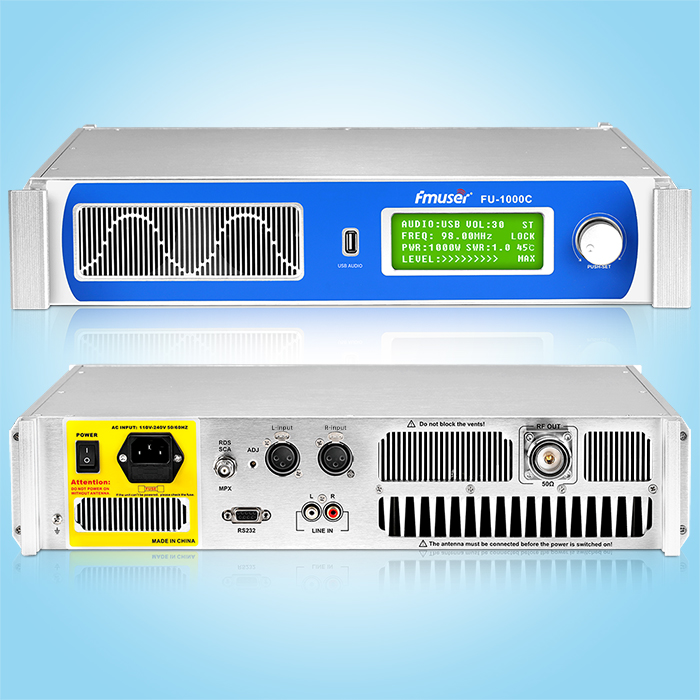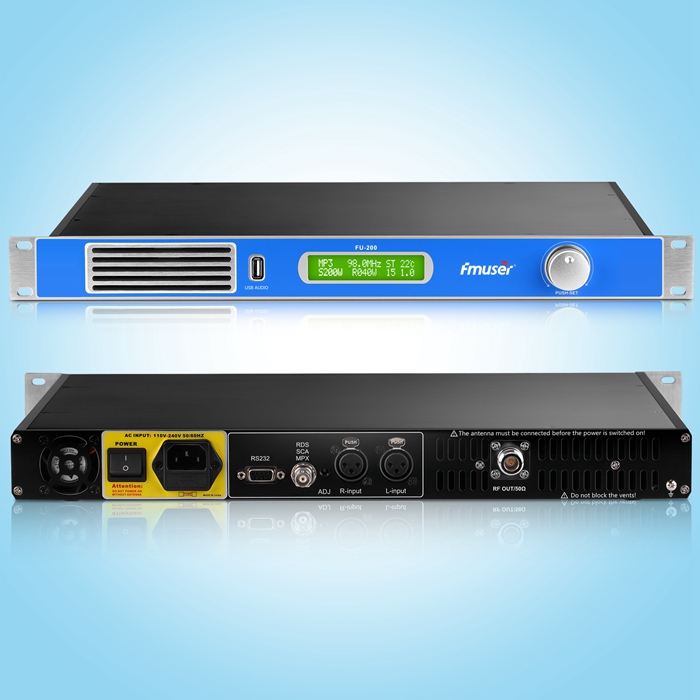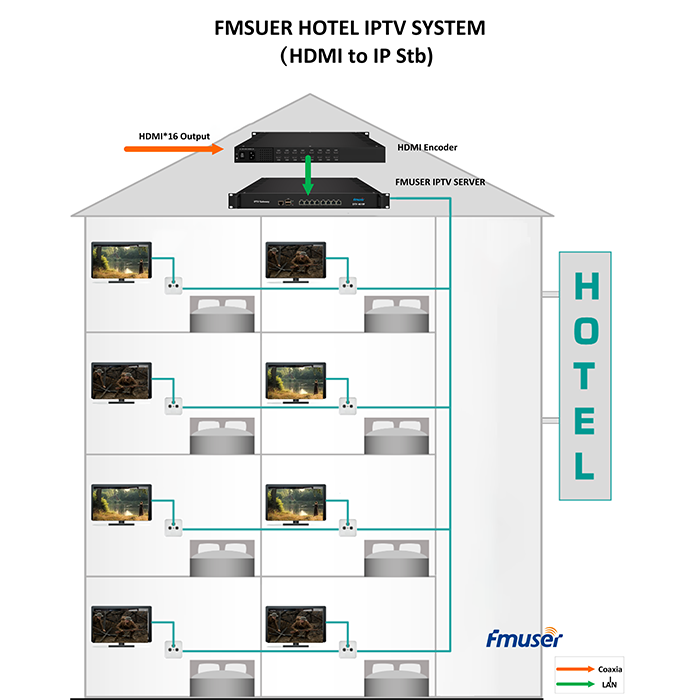You are in the right place, this article will tell you what is db and dbm and what difference between them. You will find everything you want to know about db and dbm. ----- FMUSER
DB is a pure count of unit: dB = 10logX. In fact, the significance of dB be simple, and is to a large (followed by a long list of 0's) or small (in front of a long list of 0's) out of a few relatively brief said. Such as:
X = 1000000000000000 (the number of?) = 10lgX = 150 dB
X = 0.000000000000001 = 10lgX = -150 dB
dBm is defined miliwatt. 0 dBm = 10lg1 mw;
dBw definition watt. 0 dBw = 10lg1 W = 10lg1000 mw = 30 dBm.
DB by default is always the definition of power units to 10log of dollars. Of course, under certain circumstances can use signal strength (Amplitude) to describe the power and power, this time as a meter on the use 20log. Whether the field is to control or signal processing is so. For example I think we can see that dBmV expression.
In dB, dBm calculation, pay attention to basic concepts. Example, said earlier 0dBw = 10log1W = 10log1000mw = 30dBm; As another example, with a dBm by another dBm, the obtained result is dB. Such as: 30dBm - 0dBm = 30dB.
Generally speaking, in engineering, dB and dB is only between the addition and subtraction, multiplication and division do not. The most used is the subtraction: dBm reduction is actually two power divided dBm, signal power and noise power divided is the signal to noise ratio (SNR). dBm plus dBm is actually two power multiplied, it has been rare (I only know the power spectrum convolution calculation of such applications). dBm by dBm what, 1mW of 1mW TRUE? In addition to the old classmates wrote me this way can hardly keep pace with the expression Goldbach conjecture, I have lived so many years and have not seen what works in this field of play.
dB is a power gain of the unit, said a relative value. When calculating the power A large or small compared to B the number of dB, according to the formula 10 lg A / B calculations. For example: A power power than twice as large as B, then 10 lg A / B = 10 lg 2 = 3dB. In other words, A's power over B power large 3dB;, if A's power of 46dBm, B's power is 40dBm, you can say, A over B-6dB; if the A antenna 12dBd, B antenna 14dBd, it can be said
dBm is a power that the absolute value of the units, the calculation formula is: 10lg power value / 1mW. For example: If the transmission power of 1mW, according to dBm units after the conversion value should be: 10 lg 1mW/1mW = 0dBm; for 40W of power, then 10 lg (40W/1mW) = 46dBm.
dB (Decibel, dB) is a pure counting unit, intended to indicate the ratio of the amount of two sizes, it has no units.
In the engineering applications often see the definition of seemingly different ways (just look different). For power, dB = 10 * lg (A / B). For voltage or current, dB = 20 * lg (A / B). Here A, B Comparison of the power represented in values or current and voltage values.
dB, meaning in fact be easier, is to a large (followed by a long string of 0's) or small (in front of a long string of 0's) out of a few relatively brief said. Such as (here in terms of power as an example):
X = 100000 = 10 ^ 5
X (dB) = 10 * lg (X) dB = 10 * lg (10 ^ 5) dB = 50 dB
X = 0.000000000000001 = 10 ^ -15
X (dB) = 10 * log (X) dB = 10 * log (10 ^ -15) dB = -150 dB
Generally speaking, in engineering, dB and dB is only between the plus or minus, there is no multiplication and division. The most used is the subtraction: dBm reduction is actually two power divided dBm, signal power and noise power is divided signal to noise ratio (SNR). For example: 30dBm - 0dBm = 1000mW/1mW = 1000 = 30dB. dBm plus dBm is actually two power multiplied, there is no real physical meaning.
In electronic engineering field, amplifier gain is the use of dB (decibels). Amplifier output and input ratio of magnification, the unit is "times", such as 10 times the amplifier, 100-fold amplifier. When the changeover to the "db" do units, the amplification gain on the call, this is a concept called the two.
Electricity in the db with the magnification conversion relationship:
A (V) (dB) = 20lg (Vo / Vi); voltage gain
A (I) (dB) = 20lg (Io / Ii); current gain
Ap (dB) = 10lg (Po / Pi); power gain
Db definitions voltage (current) gain and power gain of the formula different, but we all know that power and voltage and current relationship is P = V ^ 2 / R = I ^ 2 * R. After using this formula, the two gain values on the case:
10lg [Po / Pi] = 10lg [(Vo ^ 2 / R) / (Vi ^ 2 / R)] = 20lg (Vo / Vi).
Make use of decibel units are three major advantages.
(1) The value of smaller, easy to read and write. The total magnification of electronic systems are often thousands, tens of thousands or even hundreds of thousands, a radio signal received from the antenna to put sound into the speaker output, a total of 20000 times to enlarge. With the decibels, said the first right to take a number of much less value.
(2) to facilitate operations. Cascaded amplifiers, the total magnification is multiplied at all levels. To do with the decibel units, the overall gain is the sum of. If a certain level is 100 times the pre-amplifier (20dB), after the level is 20 times (13dB), then the total power magnification is 100 × 20 = 2000 times, with a total gain of 20dB +13 dB = 33dB. (3) to listen to a sense of convenience estimates. The loudness of the sound heard is the relative increase in power was positively correlated. For example, when electric power increased from 0.1 watts to 1.1 watts when he heard the voice of the ring a lot; increased from 1 watt to 2 watts, the loudness is not much more backward; further enhanced from 10 watts to 11 watts, there is no one can hear the difference for loudness. If that is the absolute power of 1 watt, but with the gains that were 10.4dB, 3dB and 0.4dB, which will be able to more consistently reflect the human ear to hear differences in the loudness. If you note that we will discover, Hi-Fi amplifier volume knob on the scale are the subject of db, so that when you change the volume more intuitive.
DB values of,-3dB and 0dB two points must be aware of. -3dB also called half-power point or cut-off frequencies. When normal power is half the normal voltage or current is 1 / 2. In the electro-acoustic system, ± 3dB difference does not affect the overall characteristics are considered. Therefore, indicators of a variety of devices, such as frequency range, output power of equality, without explanation, then may have ± 3dB of access. For example, the previously mentioned frequency response of 10Hz ~ 40kHz, that means that this frequency, the output rate of no more than ± 3dB, which means that these two endpoints 10Hz and 40kHz frequency, the output voltage swing is only the middle frequency bands 0.707 (1 /) times the. 0dB said output and input signals as large or two more. Db is a relatively small amount, there is no absolute value. Can you level table or on the road noise meter is also able to see the number of dB of measured values, it is because people give 0dB first set a benchmark. For example, sound level meter's 0dB is 2 × 10-4μb (micro-bus), so on the road noise is 50dB, 60dB have a concept of absolute Qing Xiang. 0dB benchmarks commonly used in the following few: dBFS - to full scale value of 0dB, commonly used in a variety of characteristic curves; dBm - at 600Ω load to generate power 1mW (or 0.775V voltage) of 0dB, commonly used in the AC measuring instruments on the flat; dBV - with a V as 0dB; dBW - to 1 watt of 0dB. After the general read out the number of dB, you no longer need to be translated into voltage, sound pressure and other physical value, and professionals who can understand. Only in very rare occasions, only to be converted. Just then substituted into the formula: 10A/20 (or A/10) × D0 can be calculated. A value for the decibel reading, D0 of 0dB when the reference value, voltage, current, or sound pressure with the A/20, electric power, sound power or sound intensity is used A/10. Now you can answer this since the beginning of the problem. Only the second speaker on the same input than the first speaker sound only twice, if the two speakers to keep the same ring, then the second speaker only half as long as the input power can be. Only the first amplifier is a very common species, only the second amplifier is very Hi-Fi, the entire frequency range is only ± 2.3% output voltage of the difference!
Signal to noise ratio, ie SNR (Signal to Noise Ratio), also known as signal to noise ratio, that is, the amplifier output signal voltage and the same time, the output noise voltage ratio, often expressed by a few decibels. Equipment, the higher signal to noise ratio shows that it generates less noise. In general, the larger signal to noise ratio, indicating mixed signals where the noise the smaller the higher the quality of the sound playback of the sound, or the opposite. Signal to noise ratio generally should not be less than 70dB, high-fidelity speakers for more than 110dB signal to noise ratio should reach.
Our other product:


